
views
X
Research source
Here’s to cultivating wonderful, long-lasting friendships!
- Acquaintances are people you’ve met once or twice but aren’t close with. You may want to get to know them or be content to only run into them.
- Casual friends can be coworkers, classmates, and friends you occasionally see at gatherings. You like them but wouldn’t try to spend time with them.
- Close friends are the people you make an effort to see and communicate with. You’ve spent plenty of time with them and can count on them for empathy and support.
- Intimate friends are at the highest stage of friendship. These are the people you would tell your deepest secrets to and trust to help you under any circumstances.
Strangers

A stranger is someone you know of but have never met. We’ve all been there: you see someone in the grocery store or the like who you recognize from social media or work, but you don’t know whether or not to say hi. They probably recognize you too, but you’re worried it might be weird to acknowledge them—this is a classic stranger conundrum and the first level of friendship. Strangers can also be people you have no knowledge of and have never seen before. Think back to how and where you met some of your friends—which of them started as strangers, and how did you befriend them?
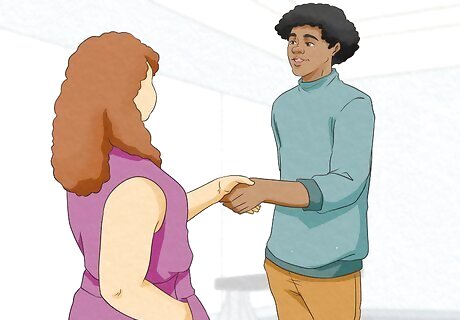
Introduce yourself to strangers you’d like to connect with. If a stranger you’ve encountered seems like someone you could easily get along with, don’t be shy and introduce yourself! It may feel intimidating, but saying a quick hello can be all it takes to start a life-long friendship. You could start by saying your name, like, “Hi, I’m John,” followed by a statement or question that explains why you’re talking to them, such as, “Do you work in this building?” or “I think we follow each other on Instagram!”
Acquaintances
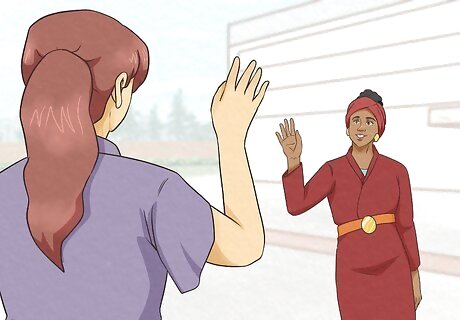
An acquaintance is someone you rarely see and know little about. Every friendship has to start somewhere! This level of friendship is very superficial and lacks the depth that comes from learning about and spending time with someone. Whether you ran into a kind stranger out on the town or met a mutual friend, these people can be considered your acquaintance—your relationship could blossom into something beautiful! Think back to when you first met some of your closest friends. It can be helpful to remember when you were just acquaintances to determine what it takes to develop a meaningful relationship from scratch.
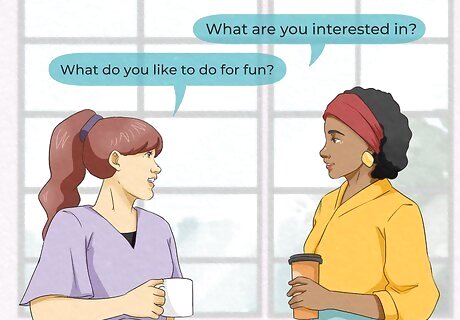
Ask acquaintances questions to get to know them better. Turning an acquaintance into a casual friend starts with learning more about them and being a good listener. Ask questions like “What are you interested in?” or “What do you like to do for fun?” to discover common interests. Who knows? You might be two peas in a pod! Some people never leave the acquaintance stage, and that’s okay! Whether you don’t vibe with them as much as you’d like or you wouldn’t go out of your way to spend time with them, not everyone has to be your close friend.
Casual Friends

A casual friend is someone you like but don’t spend much time with. Casual friends—you know ‘em, you love ‘em, but seeing them is more of a coincidence than a conscious effort. Think of casual friends as the people you’ve gotten to know a bit at work, school, or parties and became friendly with. While running into them is great, you probably wouldn’t call them to hang out. A good way to tell if someone is your casual friend is by asking yourself if you would feel comfortable expressing your emotions or vulnerabilities with them. If not, they’re likely your casual friend, not your close or intimate friend.

Get closer to your casual friends by spending more time with them. If you’re looking to strengthen your relationship with your casual friend, ask them to hang out with you, like going to a cafe to share a coffee! This is a super neutral, casual outing that might give you the opportunity to learn more about them. Casual friends can be just as important as close friends. Research suggests that our relationships with “weak ties,” like our local barista, play an important role in boosting our happiness and sense of belonging!
Close Friends
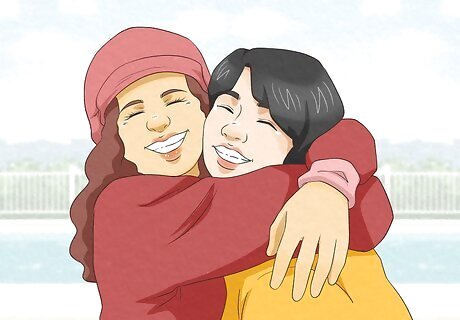
A close friend is someone who you trust and are committed to. Welcoming someone into your inner circle means you’ve spent plenty of time with them, learned about their character, and decided to trust them. We love to talk to these wonderful people about anything and everything and consciously try to spend quality time with them. Plus, they improve our mental health! It takes plenty of time to make a close friend. Believe it or not, research suggests that it can take approximately 200 hours to consider someone your close friend—talk about a commitment!

Check in on your close friends at least once a week. Strengthen your relationships with your close friends even further by checking in on them every few days or at least once a week. A simple “Missing you!” text is all it takes to stay in touch and make their day. Maintaining close friendships has been shown to improve our self-worth and social adjustment. Yes, please!
Intimate Friends

An intimate friend is someone you would share anything with. Developing an intimate friendship takes years of communication based on empathy and understanding. Whereas most people have a handful of close friends, you typically only have 1 best friend. This is a person you’d trust with your deepest secrets and could count on to be there for you under any circumstances. Do you have someone you can speak your mind with, be your most authentic self around, and trust with your most personal details? If so, this person may be your intimate friend and a treasure to have in your life.
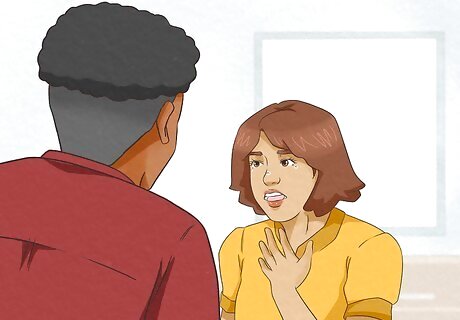
Allow your intimate friends to come to you for advice. Be a better intimate friend to others by letting them share their vulnerabilities, fears, and dreams for the future with you. In return, show empathy and offer them thoughtful advice. Remember, intimate friendships are a two-way street, so they should also make themselves available to you. If you have trouble opening up to your intimate friends, even when you trust them to support you, you may struggle with vulnerability. While sharing about yourself can be scary, it can relieve stress and strengthen your bond with your friends. If you want to become a better person, recognize that some things about you need to change to be the best version of yourself. Think about wonderful aspects of yourself that you should cultivate and practice a little more. Reach out to close loved ones and friends, and ask them how you can be a better sibling, spouse, or friend.


















Comments
0 comment